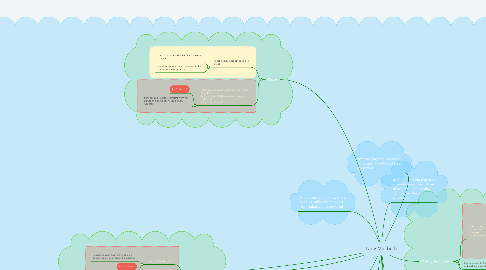
1. she says he cannot love her or he would do it
2. At the start of the play, she is seen as ruthlessly ambitious, manipulative and powerful
3. over the play, she becomes increasingly guilty and loses her power
4. Powerful
4.1. "Under my battlements"
4.1.1. showing she believes it is HER castle - going agaisnt stereotype
4.1.2. delusional from the prospect of power
4.1.3. personal pronoun
4.1.4. Act 1, Scene 5
5. Manipulative
5.1. "When you durst do it, then you were a man"
5.1.1. He was only masculine when he was going to kill the king - offensive
5.1.2. Act 1, Scene 7
5.2. Lady Macbeth persuaded Macbeth to kill the king
5.2.1. She uses her influence over him to manipulate him into doing it
5.2.2. attacks his masculinity by calling him a coward - very offensive
6. Evil
6.1. "Have plucked my nipple from his boneless gums And dashed the brains out"
6.1.1. Act 1, Scene 7
6.1.2. She would have killed a baby to show her power - unmaternal
6.2. "Come to my woman’s breasts, And take my milk for gall, you murd’ring ministers"
6.2.1. links to not wanting to be a women, turning her milk to poison.
6.2.2. Act 5, Scene 1
6.2.3. she doesnt want to be a mother
6.3. When Lady macbeth uses the word 'double', it shows she is linked to the witches
6.3.1. The word double is used repeated in one of their spells
7. Dominating
7.1. 'Give me the daggers'
7.1.1. imperative verb 'give' shows she is in control, and is calm about the situation
7.1.2. Act 2, Scene 2
7.2. Lady Macbeth clearly dominates the relationship, especially after Duncan's death
7.2.1. After the murder macbeth is too scared to take the daggers back, so lady macbeth does it herself
8. Prose
8.1. In act 5, lady macbeth speaks in prose
8.1.1. also characters who are 'mad' speak in prose
8.1.2. in shakespearean plays, characters with a low status speak or prose.
8.2. "Out, damned spot! Out, I say! —One, two. Why, then, ’tis time to do ’t. Hell is murky! —Fie, my lord, fie! A soldier, and afeard?"
8.2.1. Act 5, Scene 1
8.2.2. her speaking in prose contrasts from her power and domination. could show weakness
9. Overly Ambitious
9.1. "Yet do I fear thy nature; It is too full o’ th’ milk of human kindness To catch the nearest way:"
9.1.1. macbeth wants the crown, but is afraid to take appropriate actions to achieve it
9.1.2. the use of the word 'too' suggests she thinks kindness is bad
9.1.3. Act 1, Scene 5
9.1.4. Lady macbeth thinks he is too kind 'too full of human milk'
9.2. Spoke directly to Macbeth, ordered him around
9.3. Selfish
9.3.1. Wanting to kill duncan so she could become queen and have power
9.3.2. refused to have a child so it wouldnt hinder her getting the throne
10. Masculine
10.1. has stereotypical male traits
10.1.1. power hungry
10.1.2. willing to harm anyone in the way of her plan (king)
10.2. Come, you spirits That tend on mortal thoughts, unsex me here
10.2.1. She wants to become a man to have more power
10.2.2. women were considered to be weak, maternal and kind, none of which she wanted to be
10.2.3. Act 1, Scene 5
11. at the end of the play, she commits sauicide and her abscence from the play symbolises she is powerless.
12. Vulnerable
12.1. Towards the end of the play, her weakness begins to show
12.1.1. "Had he not resembled My father as he slept, I had done ’t."
12.1.1.1. Act 2, Scene 2
12.1.1.2. lady macbeth was unable to murder duncan as he looked like her father as he slept
12.1.1.3. this shows she is capable of showing love and kindness, stereotypically female traits. previously, she rejected all female traits
12.1.1.4. for the first time, she reveals compassion, suggesting she hasnt been able to crush all her kindness
13. Guilt
13.1. at the end of the play, lady macbeth is driven mad by guilt
13.1.1. this manifests through sleepwalking and hallucinations
13.2. she imagines she is washing blood of her clean hands
13.2.1. "Out, damned spot! out, I say!"
13.2.2. Act 5, Scene 1
13.2.3. jacobean sociaety considered sleepwalking unnatural, and was seen as a sign of madness
13.2.4. blood is a motif to symbolise guilt
13.2.5. washing her hands could suggest she regrets her actions
